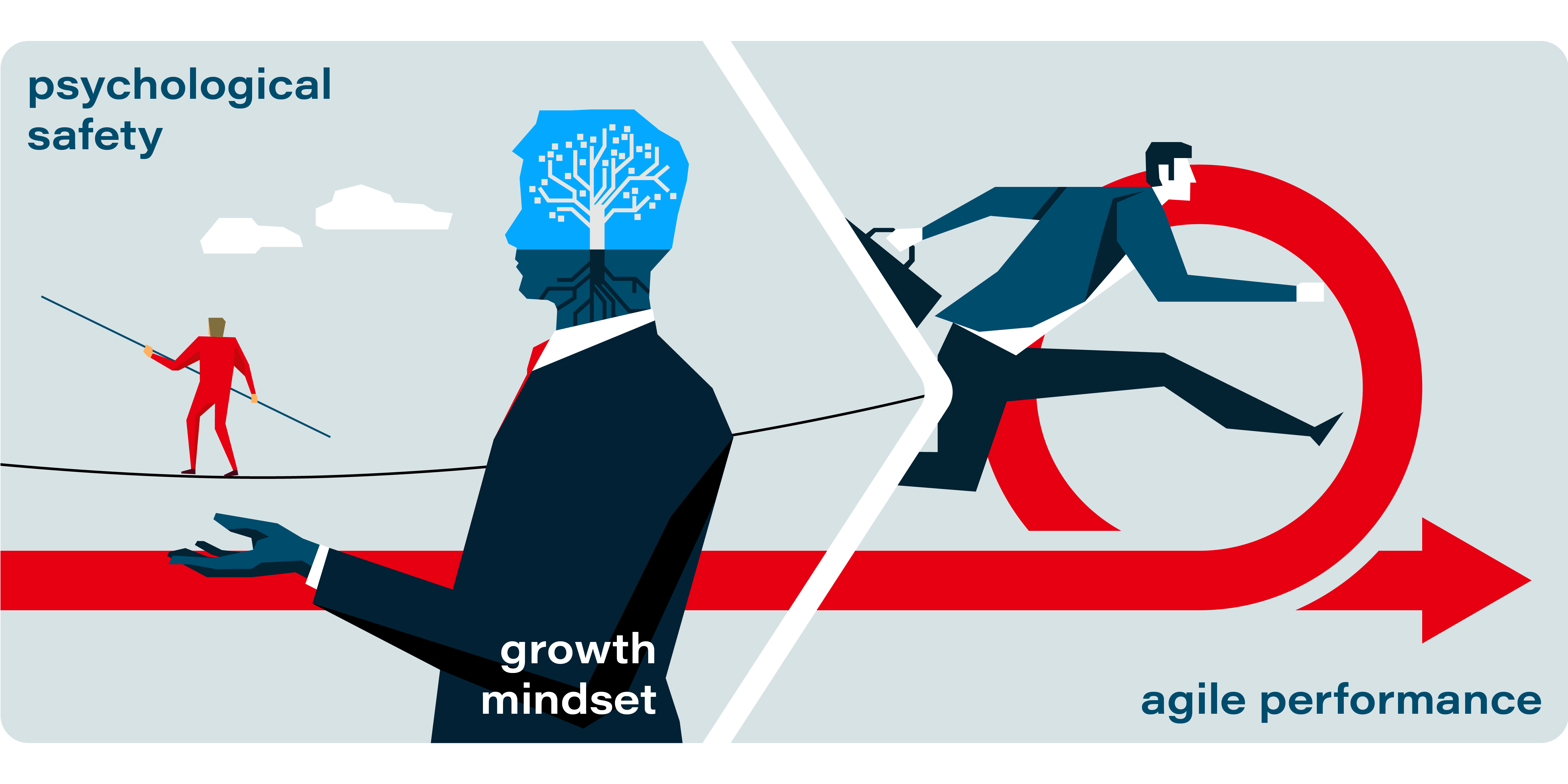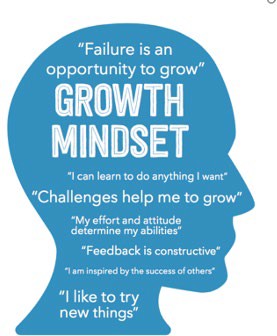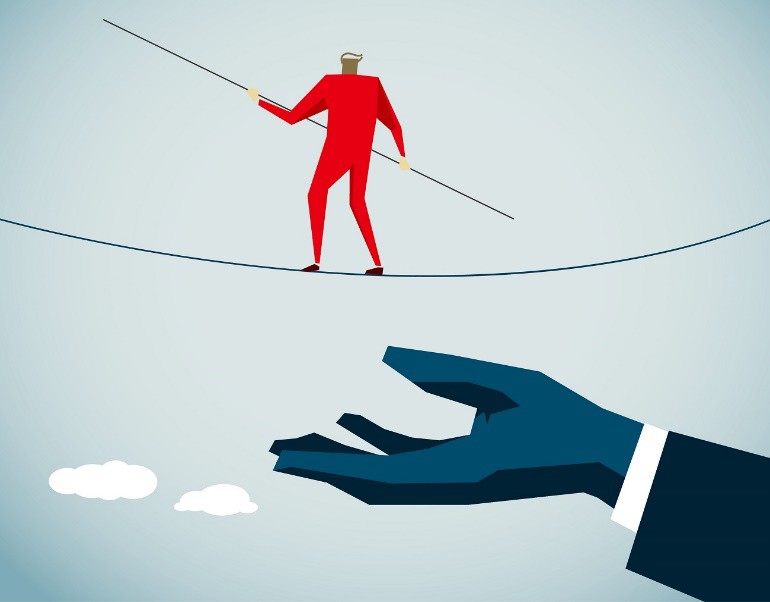Learning

A much-quoted mantra from agile is ‘fail fast’ – but the key thing is not failing but learning from it. So, for ‘fail fast’, read ‘learn fast’. This is often difficult in established organisations which are doing their best to chase efficiency. Getting better at learning is not only desirable, it is essential if the organisation and the people in it are to adapt resiliently.
Two key practices can help.
1 growth mindset

One of the biggest drivers of individuals and group performance is mindset – you either have a ‘fixed’ mindset focused on talent or a ‘growth’ mindset focused on development.
The fixed mindset assumes that your achievements are down to your innate strengths and that your failures are down to your innate weaknesses. The growth mindset sees achievements as the overcoming of challenge by learning and hard work A “growth mindset,” thrives on challenge and sees failure not as evidence of lack of talent but as a springboard for growth.

Years of psychological research show that a growth mindset promotes resilience, development and performance, in individuals and in teams. The good news is that a growth mindset can be cultivated. The bad news is that this takes work. You don’t get a growth mindset just by wanting it. You need to translate it into day-to-day behaviours. Many organisations have a management culture that talks about learning, but which works on a fixed mindset. When you are challenging yourself and your team, your aim is future growth, not retrospective analysis. You should be building a ‘growth’ mindset, not a ’fixed’ mindset.
2 psychological safety
Psychological safety is the belief among team members that you will not be punished or humiliated for speaking up with ideas, questions, concerns or mistakes. It creates an environment in which people feel included, have space to learn, are given an opportunity to give their input, and feel safe to challenge decisions.
Backed by years of psychological research and hard data, it is one of the most powerful differentiators of team performance available. It is also a major engine of organisational learning.
The level of psychological safety in your organisation depends very much on the leadership approach through the company. Leaders who model a learning frame help encourage collaborative effort which builds learning and innovation. If work is framed as an opportunity to “get it right” on the first try (an ’execution frame’), people are less able to challenge and learn during the process. Resilience is built on a learning frame.
These two keys to learning – the growth mindset and psychological safety – are the critical ingredients in promoting agile performance in your organisation.

